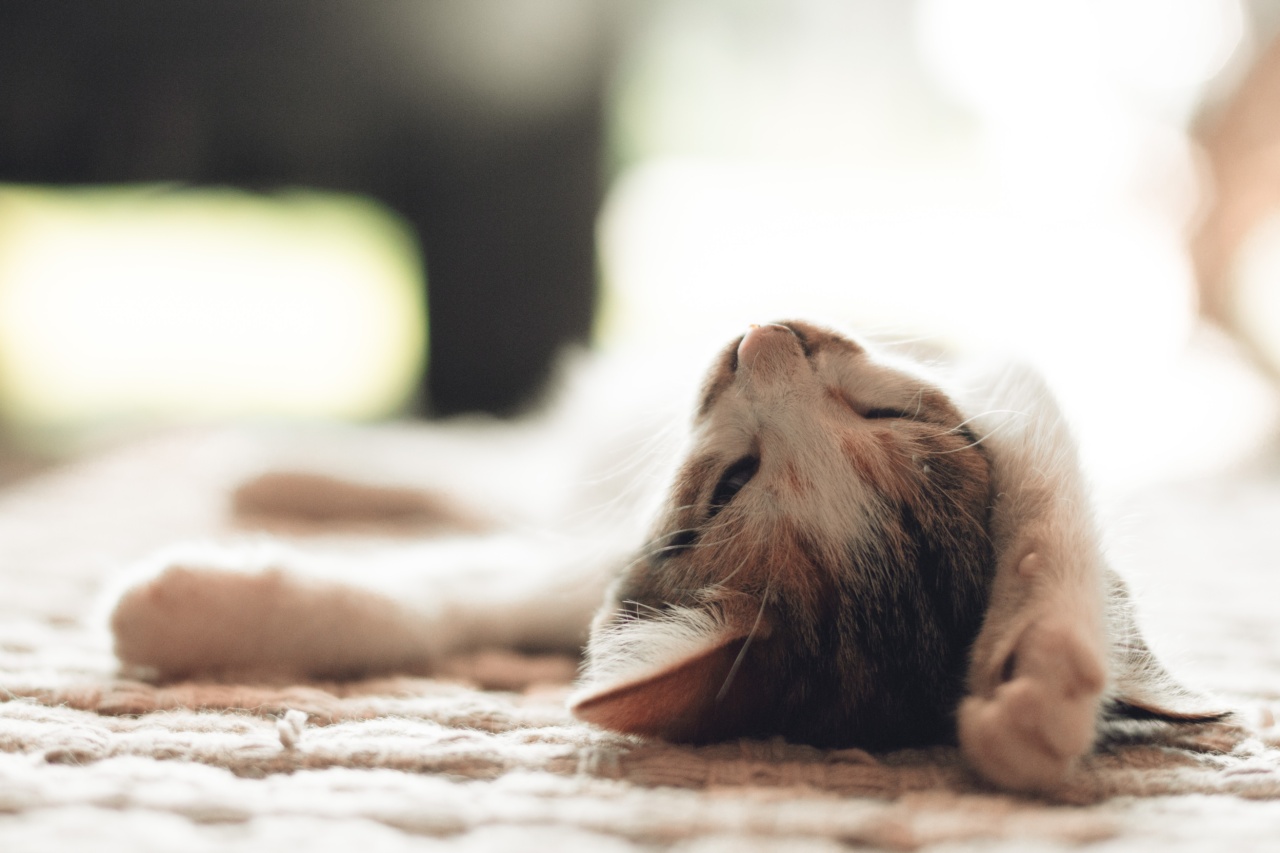Sleep is essential for a healthy lifestyle. It is the body’s way of rejuvenating and repairing itself.
But what if you are unable to sleep properly due to anxiety? Sleep anxiety can lead to various health issues, including depression, weight gain, and chronic diseases. Fortunately, there are ways to manage sleep anxiety, and one of them is by avoiding certain types of foods.
What is Sleep Anxiety?
Sleep anxiety, also known as bedtime anxiety or sleep-related anxiety, is a disorder that affects a person’s ability to sleep.
This condition manifests in various ways, such as difficulty falling asleep, difficulty staying asleep, and waking up early in the morning. People with sleep anxiety usually experience fear and worry about not being able to sleep, which can lead to physical and emotional distress.
What Causes Sleep Anxiety?
Several factors can trigger sleep anxiety, including:.
- Stressful life events, such as divorce, job loss, or financial problems
- Medical conditions, such as sleep apnea, restless leg syndrome, or chronic pain
- Mental health issues, such as depression, anxiety disorder, or post-traumatic stress disorder (PTSD)
- Poor sleep hygiene, such as irregular sleep schedule, caffeine intake, or alcohol consumption
Can Diet Affect Sleep Anxiety?
Yes, diet can play a significant role in managing sleep anxiety. Certain foods can either trigger or alleviate anxiety symptoms.
For instance, foods that are high in caffeine or sugar can keep you awake and increase your anxiety levels, while foods that are rich in tryptophan, magnesium, and B vitamins can promote relaxation and improve sleep quality.
Foods to Avoid to Manage Sleep Anxiety
If you have sleep anxiety, you may want to avoid or limit the following types of foods:.
1. Caffeine
Caffeine is a stimulant that can affect your nervous system and keep you alert. It can also increase your anxiety levels and disrupt your sleep.
Therefore, if you have sleep anxiety, it is best to avoid or limit caffeine intake, especially in the afternoon and evening. Foods and beverages that contain caffeine include:.
- Coffee
- Tea
- Soda
- Energy drinks
- Chocolate
2. Sugar
Sugar can affect your blood sugar levels and lead to fluctuations in energy and mood. It can also disrupt your sleep and increase your anxiety levels.
Therefore, if you have sleep anxiety, it is best to avoid or limit sugar intake, especially before bedtime. Foods that are high in sugar include:.
- Sweets
- Cakes
- Cookies
- Pastries
- Ice cream
3. Alcohol
Alcohol can initially make you feel drowsy and relaxed, but it can also disrupt your sleep and cause anxiety symptoms. It can also increase your heart rate and lead to dehydration, which can worsen anxiety.
Therefore, if you have sleep anxiety, it is best to avoid or limit alcohol intake, especially before bedtime.
4. Spicy Foods
Spicy foods can increase your body temperature and make you feel uncomfortable, which can make it harder to fall asleep. Spicy foods can also cause acid reflux and digestive issues, which can affect sleep quality.
Therefore, if you have sleep anxiety, it is best to avoid or limit spicy foods, especially before bedtime.
5. Fatty Foods
Fatty foods can take longer to digest and can cause discomfort and indigestion, which can affect sleep quality. Fatty foods can also increase your risk of developing sleep apnea, a condition that affects breathing during sleep.
Therefore, if you have sleep anxiety, it is best to avoid or limit fatty foods, especially before bedtime.
6. Processed Foods
Processed foods can contain preservatives, additives, and artificial ingredients that can affect your nervous system and lead to anxiety symptoms.
Processed foods can also be high in sugar, sodium, and unhealthy fats, which can affect sleep quality and overall health. Therefore, if you have sleep anxiety, it is best to avoid or limit processed foods and choose whole, natural foods instead.
Conclusion
Sleep anxiety can affect your physical and emotional well-being, but with proper management, you can improve your sleep quality and overall health.
One way to manage sleep anxiety is by avoiding or limiting certain types of foods that can trigger anxiety symptoms. By choosing healthy, whole foods and avoiding caffeine, sugar, alcohol, spicy, fatty, and processed foods, you can promote relaxation and improve sleep quality.































